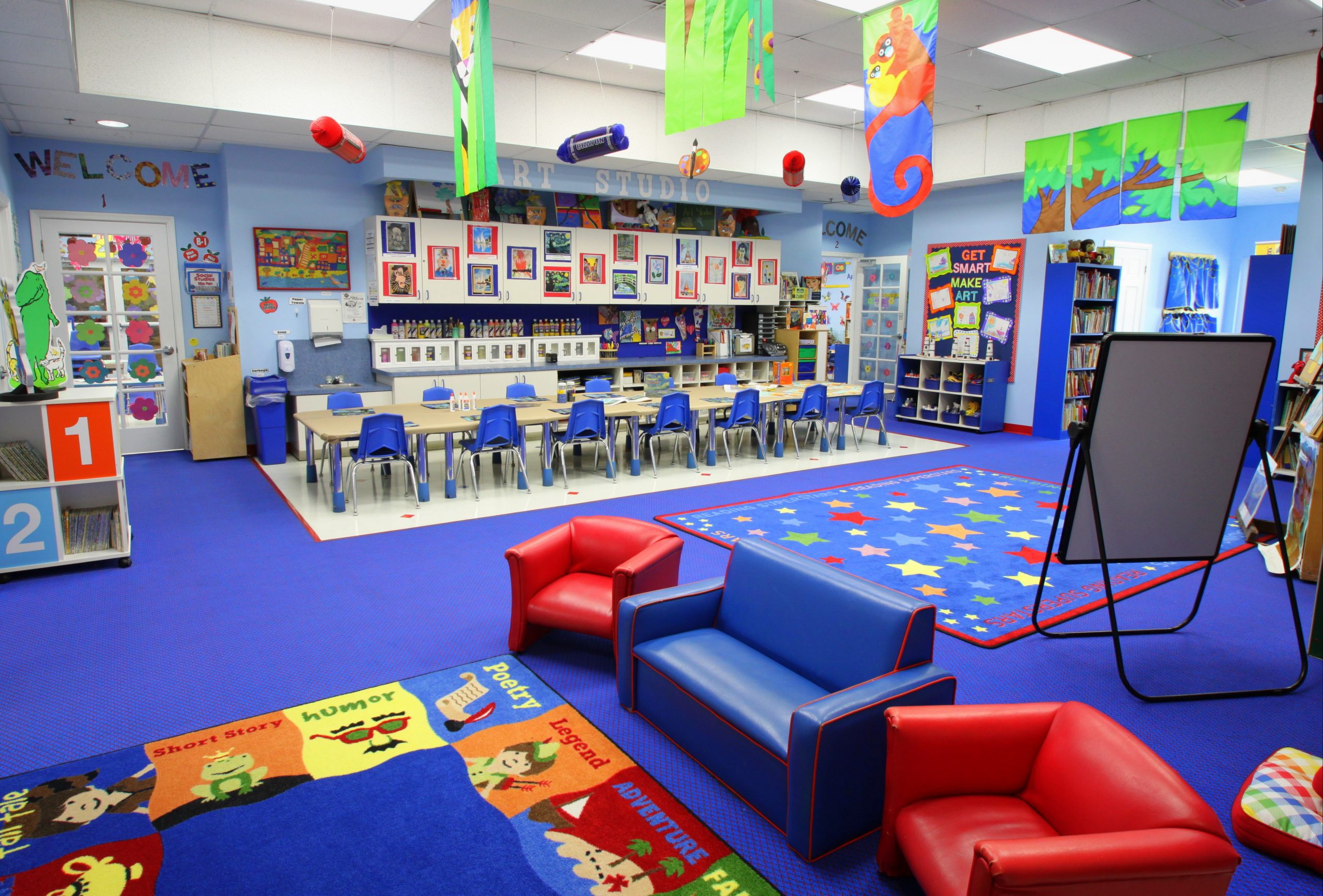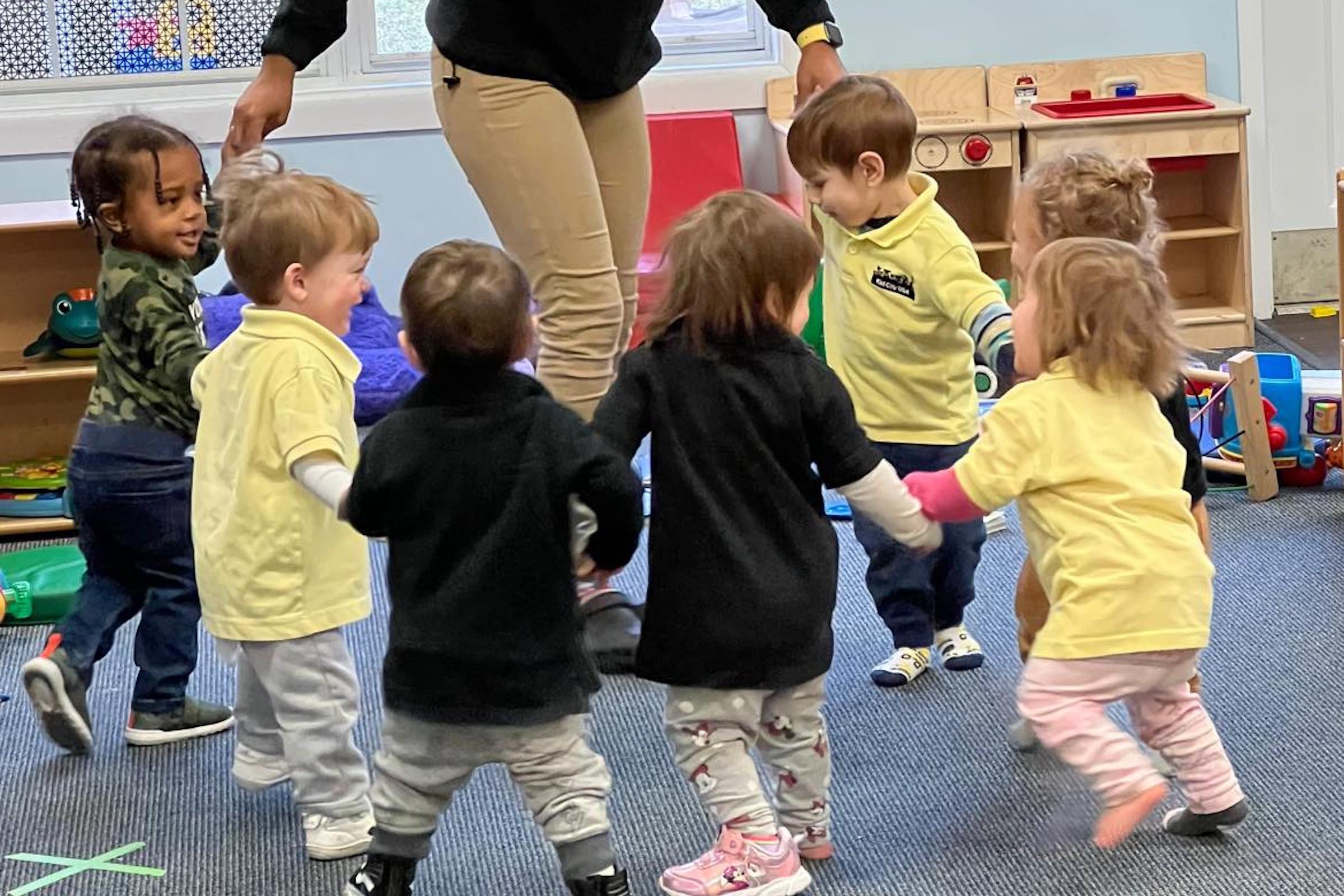The Role of Day Care in Fostering Your Young child's Cognitive and psychological Skills With Organized Play and
The role of childcare in nurturing a kid's emotional and cognitive growth is typically underestimated, yet it works as a critical atmosphere for structured play and . Via thoroughly created experiences and interactions, caregivers help with crucial abilities such as emotional awareness and problem-solving. These fundamental components not just improve a child's ability to get in touch with peers yet likewise foster durability and adaptability in various situations. Recognizing the subtleties of exactly how these characteristics unfold raises important inquiries concerning the long-lasting effect of early daycare experiences on individual development and social combination. What might that indicate for future advancement?
Value of Structured Play
Structured play is a vital component of kid advancement, as it gives a structure whereby children can take part in significant interactions and finding out experiences. This sort of play is intentionally designed to foster numerous developmental abilities, such as cognitive, social, and physical capabilities. By participating in structured tasks, kids learn to follow policies, take turns, and work together with peers, all of which are crucial for their social abilities.

Additionally, structured play frequently includes academic elements, such as counting, shade recognition, and language advancement, seamlessly incorporating discovering right into enjoyable activities. This method not only captures toddlers' focus but additionally reinforces essential concepts in a delightful fashion. Overall, structured play is instrumental in advertising a well balanced growth, outfitting kids with the foundational abilities required for future discovering and social interactions.
Emotional Advancement in Day Care
Childcare environments play a critical function in promoting psychological development in toddlers. These settings supply children with opportunities to engage with caretakers and peers, helping with the development of crucial social-emotional abilities. Via normal communications, toddlers find out to acknowledge and reveal their feelings, such as delight, sadness, or irritation, which is essential for their psychological maturation.

Additionally, the structured atmosphere of childcare allows kids to experience a range of feelings in a risk-free area. When transitioning from home to day care and establish resilience as they navigate new connections and experiences, they find out to manage feelings of separation stress and anxiety. On the whole, the emotional development fostered in day care not only benefits kids throughout their developmental years but also prepares for healthy interpersonal connections and emotional wellness throughout their lives.
Cognitive Skills With Tasks
With participating in a selection of tasks, kids in childcare setups can considerably improve their cognitive skills. Structured play and academic tasks are essential in advertising cognitive growth, as they give possibilities for expedition, analytic, and essential reasoning. Tasks such as problems, structure blocks, and memory video games test young children to believe creatively and rationally, promoting vital skills like spatial understanding and pattern recognition.
Moreover, interactive storytime sessions urge language growth and understanding. By listening to stories, toddlers find out to refine info and engage their creative imaginations, which boosts their narrative skills and vocabulary. Additionally, hands-on activities entailing crafts and arts stimulate great electric motor skills while additionally motivating self-expression and imagination.
Sensory play, such as sand or water activities, permits young children to try out various appearances and materials, promoting inquiry-based understanding. These experiences not just enhance cognitive capacities however also infuse a sense of inquisitiveness regarding the world around them - daycare near me for infants. Overall, the varied range of cognitive tasks offered in childcare atmospheres plays a pivotal function fit a young child's Get the facts ability to believe critically, fix problems, and engage meaningfully with their environments
Social Connections and Interaction
In a caring environment, kids naturally create social links and participate in communications that are important for their psychological and interpersonal advancement. Childcare settings supply an unique chance for youngsters to communicate with peers, cultivating essential social skills such as sharing, participation, and conflict resolution. These interactions aid young children learn to navigate their emotions and recognize the viewpoints of others, which are crucial elements of psychological knowledge.
Through structured play and group tasks, kids are urged to communicate their sensations and thoughts, improving their verbal skills and promoting compassion. Involving with peers additionally presents them to varied social standards and behaviors, enriching their understanding of social dynamics. Constant interaction with various other youngsters assists to develop a feeling of neighborhood, supplying an assistance system that is helpful for psychological development.
As young children join collective tasks, they learn the significance of team effort, patience, and settlement. These foundational social skills are critical as they plan for future connections, both in educational setups and past. Ultimately, the social links created in day care play a considerable role fit a young child's ability to connect positively and effectively with others throughout their lives.
Duty of Caregivers in Growth

Caretakers play an essential duty in cultivating toddler growth, specifically in the context of the social communications they experience in childcare setups. These experts supply a caring atmosphere where young children right here can explore their feelings and cognitive capacities via structured play and instructional activities. By taking part in meaningful conversations, caretakers sustain language advancement and enhance social skills.
In addition, caretakers design suitable behaviors and psychological actions, aiding young children learn compassion and dispute resolution. Their existence also develops a complacency, which is necessary for kids to confidently discover their surroundings and involve with peers.
In Visit Website enhancement to social and emotional support, caregivers contribute in carrying out educational curricula that advertise cognitive growth - infant daycare near me. They introduce age-appropriate tasks that stimulate inquisitiveness, vital reasoning, and analytic abilities. This organized technique guarantees that kids not only appreciate their playtime however also get fundamental understanding essential for future discovering
Ultimately, the high quality of caregiver interactions significantly affects a kid's overall advancement. By cultivating a helpful and interesting ambience, caretakers help prepare for healthy and balanced emotional and cognitive growth, outfitting children with vital abilities for their long-lasting journey.
Final Thought
In verdict, childcare works as an important atmosphere for cultivating cognitive and emotional development in toddlers. With structured play and instructional tasks, youngsters experience significant growth in their capability to acknowledge and reveal feelings, create essential thinking skills, and form vital social links. The function of caretakers is critical in promoting these experiences, ensuring that each child take advantage of a nurturing atmosphere that advertises long-lasting emotional health and cognitive advancement.
The role of daycare in supporting a kid's cognitive and psychological advancement is usually taken too lightly, yet it offers as a crucial setting for organized play and academic activities. In general, structured play is important in promoting a well balanced growth, furnishing young children with the foundational skills essential for future understanding and social communications.
Day care atmospheres play an important function in fostering psychological advancement in young children. Overall, the psychological growth promoted in daycare not just advantages young children during their developmental years however also lays the foundation for healthy interpersonal partnerships and emotional health throughout their lives.
With structured play and group tasks, toddlers are urged to interact their thoughts and sensations, enhancing their spoken skills and advertising empathy.
 Joseph Mazzello Then & Now!
Joseph Mazzello Then & Now! Ross Bagley Then & Now!
Ross Bagley Then & Now! Destiny’s Child Then & Now!
Destiny’s Child Then & Now! Shannon Elizabeth Then & Now!
Shannon Elizabeth Then & Now! Atticus Shaffer Then & Now!
Atticus Shaffer Then & Now!